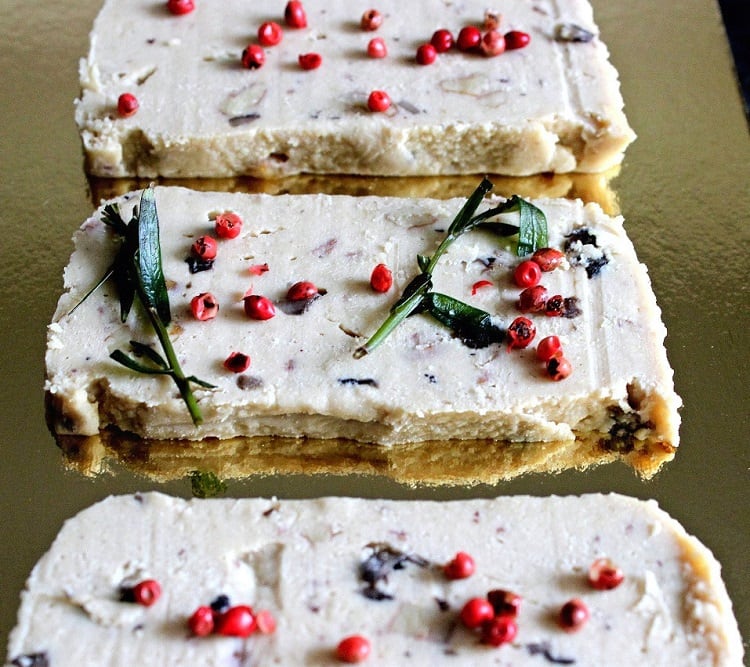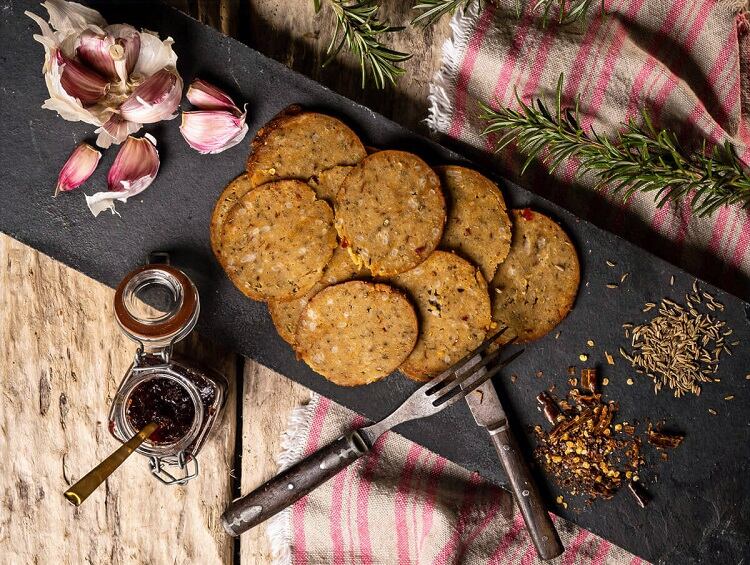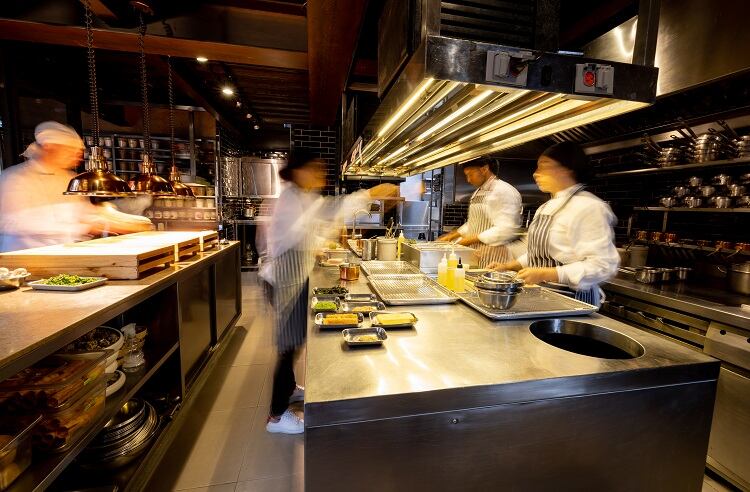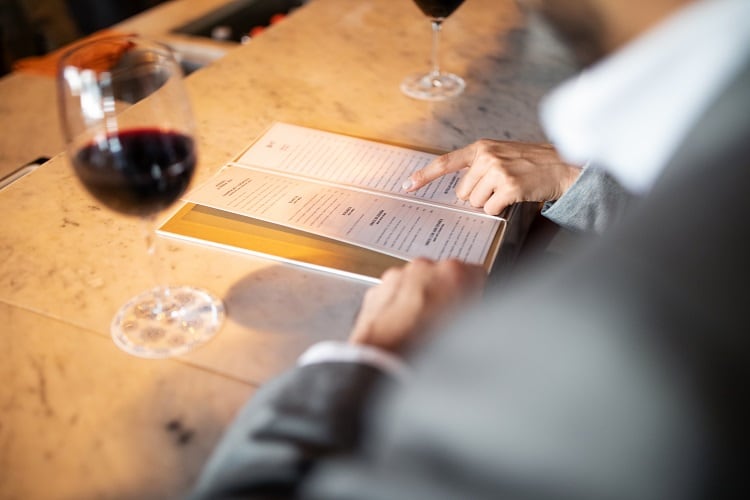Bowe’s brand, which will be hitting UK shelves this Christmas, is called Shocken Foods: a plant-based meat brand with a range of products including foie gras, chorizo, bresaola and a vegan nduja spread. It is backed by the food tech investor Big Idea Ventures.
Bowe has a wide range of experience which gives her a unique way of looking at plant-based food. Working in Michelin star kitchens, for example, gave her a very specific way of approaching cooking. “There is no doubt Michelin methods of working with food can push boundaries, reinventing foods we thought we already knew well,” she told FoodNavigator.
“I have seen what's possible. For example, at the Mandarin Oriental under Heston Blumenthal, we made a chicken parfait, in the shape of an orange mandarin that looked like the fruit. It's one of Heston's most famous creations.
“Learning to create things like this stimulated my imagination, but also taught me a structured process. Timings, temperatures and precision in ingredient ratios mattered hugely. We were operating in seconds and milligrams and we naturally had to be perfectly organised. There was no room for error.”

This meticulous approach, believes Bowe, marks Shocken Foods out from similar brands. “As much as I admire some home cooks and well-wishing vegans going from a domestic kitchen or their street food stall to launch a product, my journey couldn't be more different. The heavily organised, meticulous food training that happens in Michelin three-star kitchens really is an asset in creating a solid taste profile that doesn't vary from day to day.
“There really needs to be more education and experience in food design and production, as a lot of early-stage vegan products disappointed consumers and had a chilling effect on the category as a whole. If your first vegan food is bad, it's not likely you will try another vegan product again soon.”
The experience of a chef working in Michelin-star kitchens comes in handy in the creation of Shocken Foods’ products, she said.
“We do not use any extrusion and although the process is derived from cooking, it is a combination of Michelin methods to manipulate the texture, applied to a manufacturing setting at scale. The secret lies in the intimate know-how of varied thermal processes and how they alter the structure of cells and taste of the food.
“Without infringing on any trade secrets or IP concerns, I will use some examples. Everyone can cook a steak at home, but most will turn out chewy, unless you know the precise timings of searing and resting based on weight, the oil temperature, and to alter the process if cooking from cold or ambient temperatures. The end result, with the same ingredient, will be very different depending on the process applied. Similarly, triple-cooked chips achieve different texture through a combination of high heat and blast freezing.
“I could go on about the flavour infusion methods, sous vide or brining we use. The bottom line is that while our methods are technically precise, what we do is not artificial. Everything in the ingredient list is familiar. We achieve our texture and shelf life without stabilisers, emulsifiers or any other additives.”
Bowe has also catered for the BAFTA Awards, UK Prime Minister Boris Johnson, and the Queen.
“It was always about impressing visually first and then killing it with the most indulgent flavour you can create, sometimes aiming for an element of surprise,” she told us about her high-profile catering experiences. “Nutrition very rarely came into the picture; in fact, it was often expected to have the richest, most luxurious foods like foie gras for the prestige it lent to the event with little regard for wholesome balance.
“Having produced food to that level I have a high taste benchmark to meet in our creations, but know there are other important factors crucial in the product design. The key is to not compromise that taste standard for the sake of quantity when producing at scale, as well as being very specific in how we're building the nutritional profile in a comprehensive way with good sources. Ironically, I feel that being in manufacturing has less room for error than high end catering. I'm under more pressure to make an immaculate product that must be reliably consistent each time.”

Qualities of the product
According to Bowe, the product is unique not simply because of her experience, but for its high protein content and nutritional value as well.
“We have the highest protein on record,” she told us. “I'd dare you to find another meat analogue with 40g of protein per 100g (our porchetta). But it's about more than just high protein, it has to have a varied amino acid profile, so we work with multiple protein sources, including side streams. Our Michelin credentials mean you can expect quality, but also consistency.”
There are also certain vitamins included. “A range of our products already contain B12 from rich, yeast-derived ingredients,” Bowe told us. “However, to keep with our ethos of natural foods, we steer our manufacturing away from over-processing, so we haven't been fortifying our products. We are advocates of a wholesome, varied diet, where the nutrients come from multiple comprehensive sources.
“Having said that, as we look into making a wider impact in 2024 and beyond the UK, we recognise that fortification is a strong tool to combat deficiencies and we will definitely be exploring the best way to enhance the nutritional profile of our meats with minimal processing.”
The brand has already won several awards, including ‘Food Startup of the Year’ at the National Startup Awards in May, a Great Taste Award for its vegan nduja spread, and the Silver Award in the category of ‘Best New Business’ at the UK’s Best Women in Business Awards.




